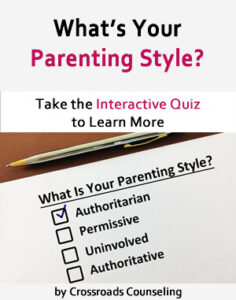If you’ve ever wondered what your teen was thinking, or why they seem to have ideas that are so different from yours, you’re not alone. The way teens think has been stereotyped and used as a trope for years.
But, there’s some truth behind it.
The teenage brain doesn’t work the same way as the adult mind. There are a few key differences that are important to note. Doing so will help you better understand your teen. When you develop that understanding, you can work with them to develop the critical thinking skills necessary to help them transition to adulthood.
The Brain Is Still Developing
The teenage brain isn’t fully developed. That might be a difficult thing to believe, but the prefrontal cortex doesn’t fully mature until a person is in their twenties.
What does that mean for your teen?
The prefrontal cortex is responsible for things like planning ahead and making good decisions. If it seems like your teen is impulsive or that they don’t think about the consequences of their actions, it’s likely because that part of the brain isn’t fully developed yet.
While you can’t rush the maturing process, you can help your teen slow down and teach them how to look forward and plan. By the time their mind is fully developed, they’ll be able to make healthier decisions that focus on the future.
Keep in mind that your teenager’s brain will also change based on their social experiences. Things like relationships, peer pressure, bullying, or just a desire to fit in can impact the way they think. That can be a positive thing. It might inspire them to join more clubs or work harder academically. But, it could also cause them to take more risks or jump into dangerous behaviors.
The Brain Is Ready to Learn
Teenage brains are very quick to learn and adapt, depending on the situation. A younger brain can often respond to change better than an adult brain. So, this is the perfect stage of life to introduce your teenager to as many new experiences as possible.
Let them sign up for things they’re interested in, like music or sports. It’s a great opportunity for them to grow and discover their true passions. Encouraging your teen to take on challenges and learn a lot now can help them become lifelong learners.
Stress Responses
Most people understand that stress can wreak havoc on the brain, no matter your age. For teens, the effects of stress can be even worse, contributing to mental health issues like anxiety or depression early on in life.
The good news? The teenage brain is very resilient. Even though it might not respond to stress well, it can typically “bounce back” with the right help and a focus on mental well-being. You can do your partner by teaching your teenager how to effectively cope with stress. Encouraging things like mindfulness, journaling, and even having your teen work with a mental health professional can all help to show them the importance of their mental well-being.
Understanding the Differences
As a parent or caregiver, it’s not always easy to understand why your teen might think a certain way or exhibit specific behaviors. But, when you recognize that their brain is working differently than your own, you can take appropriate steps to help.
Find common ground, and encourage your teen to take care of their mental well-being. Foster a love of learning, prioritize communication, and let them know it’s always okay to talk to someone about how they’re feeling. That includes working with a therapist to help with any underlying mental health issues that might be starting to surface.
Begin Working With An Adolescent/Teen Therapist in Phoenix, Scottsdale, and online in Arizona
Our team of caring therapists understand that the decision to bring your child or teen into counseling can be intimidating as a parent. This is why we are happy to offer a complimentary 20-minute phone consultation. Our locations for teen counseling are located throughout the valley with counseling centers located in Phoenix, Anthem, Scottsdale and online anywhere in Arizona. You can start your therapy journey with Crossroads Counseling by following these simple steps:
- Contact Crossroads Counseling for a complimentary 20-minute phone consult
- Meet with a teen therapist
- Start counseling for your teen
Feel free to learn more about our practice by visiting our about page, FAQ, and blog, or read more about our staff members to start finding your best therapeutic fit! or, call us at 623-680-3486, text 623-688-5115, or email info@crossroadsfcc.com for more information!








